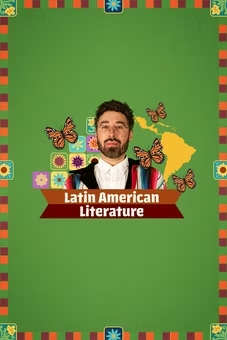
Who are the Hmong? and why are they in Alaska? | INDIE ALASKA
Season 14 Episode 10 | 3m 54sVideo has Closed Captions
A father and daughter share their Hmong heritage, war memories, and new life built in Alaska.
Join us for an intimate conversation between a father and daughter as they reflect on their Hmong heritage and journey. The father shares his memories of serving during the Vietnam War and the often-overlooked “Secret War,” where the Hmong people played a critical role. Together, they recount the hardships of immigration to the United States and the resilience it took to build a new life in Americ
Problems playing video? | Closed Captioning Feedback
Problems playing video? | Closed Captioning Feedback

Who are the Hmong? and why are they in Alaska? | INDIE ALASKA
Season 14 Episode 10 | 3m 54sVideo has Closed Captions
Join us for an intimate conversation between a father and daughter as they reflect on their Hmong heritage and journey. The father shares his memories of serving during the Vietnam War and the often-overlooked “Secret War,” where the Hmong people played a critical role. Together, they recount the hardships of immigration to the United States and the resilience it took to build a new life in Americ
Problems playing video? | Closed Captioning Feedback
How to Watch Indie Alaska
Indie Alaska is available to stream on pbs.org and the free PBS App, available on iPhone, Apple TV, Android TV, Android smartphones, Amazon Fire TV, Amazon Fire Tablet, Roku, Samsung Smart TV, and Vizio.
Providing Support for PBS.org
Learn Moreabout PBS online sponsorshipAt the time, because the Vietnam War was about Vietnam, they didn't want to, alarm different countries around the area that they're there.
So they had to engage in what we call now The Secret War.
That war was, to recruit the Hmong people to help, prevent the North Vietnam from distributing, ammunitions and soldiers to the south.
And they do that via the Ho Chi Minh trail.
Every family had to surrender a child or a son to fight the war.
I remember and, you know, his testimony that Jerry Daniels was the pilot for the CIA, and he had personal conversations with my dad about having him recruit at least 32 families come to America as a promise that they have made to the Hmong people back then, that if they won this war, great.
But if they didn't, we would, you know, find a place.
And that's where the migration of the Hmong people came.
My dad settled in the Central Valley and, eventually moved us here to The Last Frontier.
There's a lot of history to this.
It wasn't just a market.
It was a hangout place years ago, like in the early 2000.
This place wasn't paved, it was just dirt, and grass.
And we used to come here on the weekends just to kick the ball and hang out.
I've told this to other people who have asked me about it.
But the ladies Hmong ladies, they love cooking.
So, you know, we'd meet here on the weekends and they would cook.
And eventually people started exchanging cash for food So at one point, it was like people were just donating money to help the ladies who just come here and, you know, make papaya on the weekend or something.
it's home to people.
And so having that space allows them to be comfortable as who they are.
The Hmong people they'll go wherever and make it home and, having a market that they can express themselves through food and through, you know, produce and the things that they do and love and their clothing that they.
They share here.
You can see it.
It's part of it, you know, it's part of Hmong.


- Science and Nature

A documentary series capturing the resilient work of female land stewards across the United States.












Support for PBS provided by:

